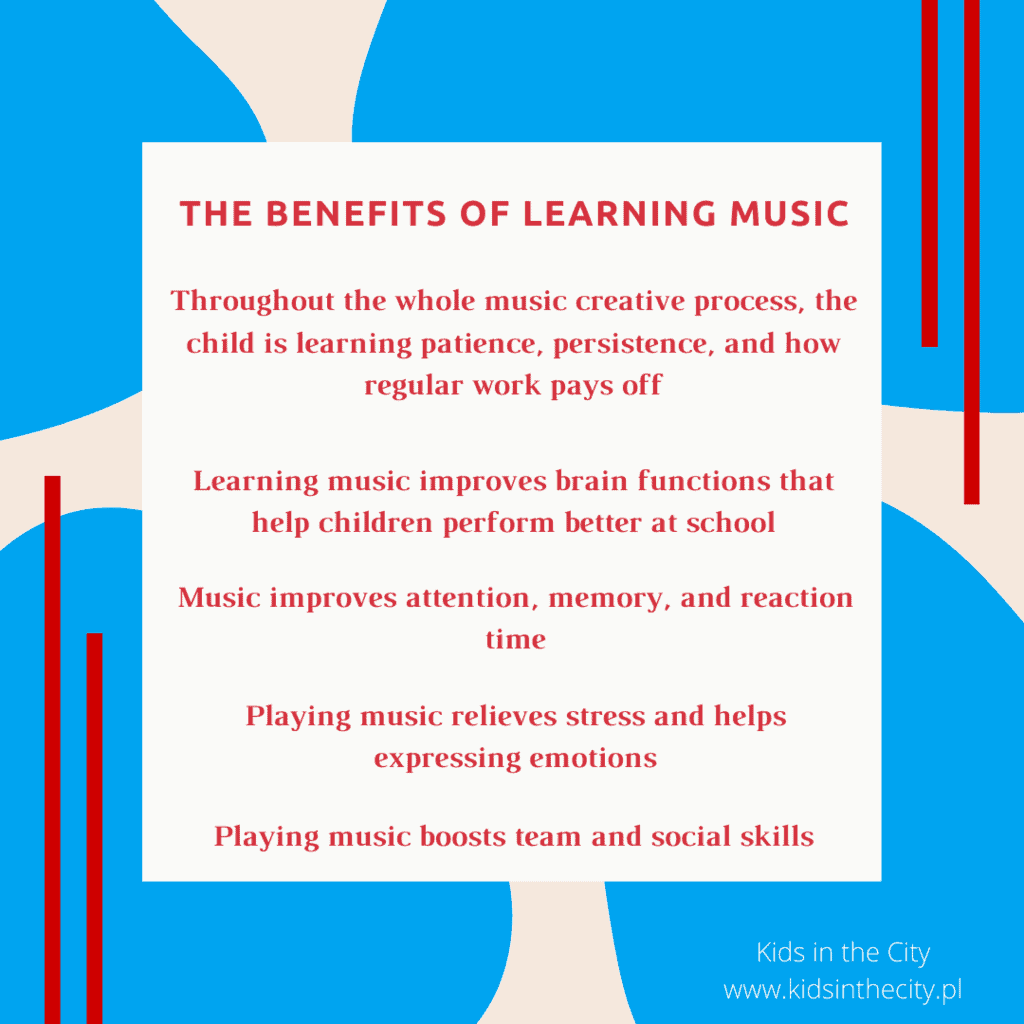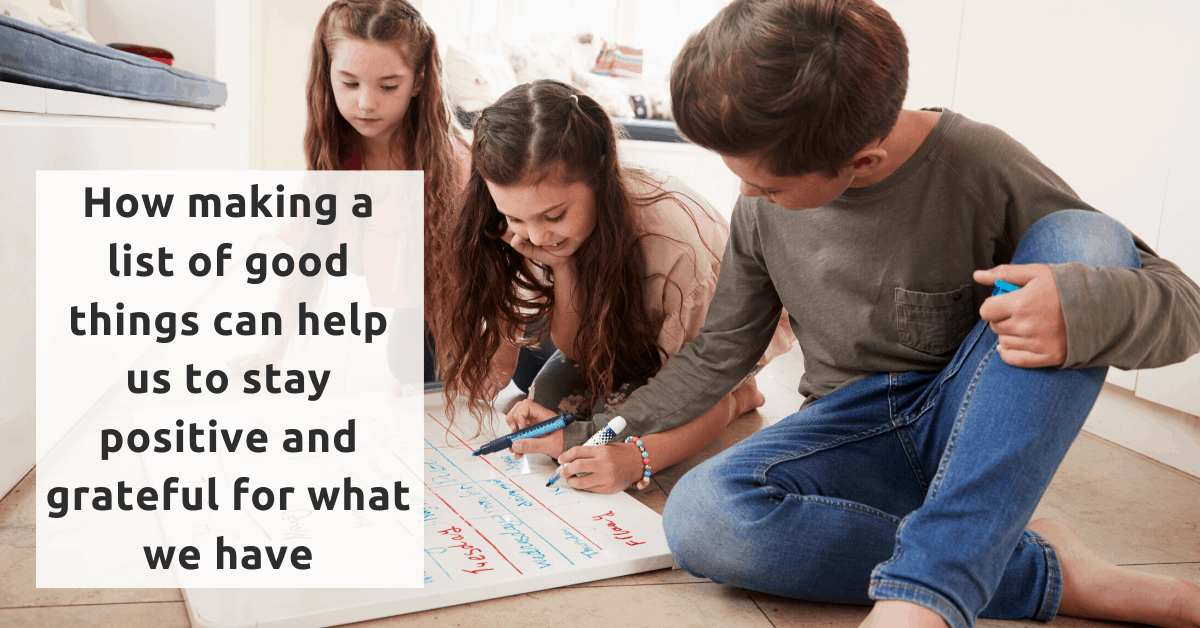Olga Szyłejko – a vocalist, a composer, and the founder of the Music Hub Academy in Warsaw – on the benefits of learning music for children and adults

Choosing the right education path for a child is something each parent needs to face at a certain point. How a child develops is not only about the kindergarten or the school we choose but also how we help them grow in a more complex way and stimulate their brain to work more efficiently. The difficult question for all parents is what extracurricular activities should I choose for my child to help them develop their potential? It’s also important not to overload these young minds with too many activities. Music is not always the first thing that comes to a parent’s mind, but it really should be top of your list.
Music and the brain
Many studies have shown how learning music improves brain functions that help children perform better at school. Harvard neuroscientist Gottfried Schlaug proved that the front portion of the corpus callosum (the mass of fibers connecting the two cerebral hemispheres) is significantly larger in musicians than in non-musicians. This is particularly true for musicians who began their training early. This proves that musicians coordinate neural structures in both the left and right hemispheres. Each hemisphere of our brain is responsible for different functions. The left side of the brain performs tasks that require logic – science and mathematics while the right side performs tasks that require creativity and art. Music activates both and creates a bridge between the left and right brain hemispheres called the corpus callosum which consists of millions of nerve fibers. Its function is related to complex problem-solving and coordination, so a well-functioning corpus callosum can improve your child’s intellectual performance.
Music teaches persistence, patience, and gives a sense of achievement
When we put a new piece of music in front of our eyes combining the rhythm with the right notes, expression, and dynamics it is very challenging at first. With time and weekly persistence, we start to see that it’s not impossible. In the end, when we play the whole piece the feeling of accomplishment is hard to explain to non-music people. Throughout the whole creative process, the child is learning patience, persistence, and how regular work pays off. Even the hardest piece at first can become easy by putting regular work into it. Persistence and patience is something we all need in many areas of our life and in many of the professions we choose.
Music improves attention, memory, and reaction time
Probably every musician will tell you that sight-reading a musical piece feels as if the brain is doing a hardcore workout at the gym. Integrating information from the senses of hearing, vision, and touch, along with fine movements requires a lot of attention, focus and at the same time trains our memory. What’s more, combining all the above actions improves reaction time. This can result in long-lasting changes in the brain. Université de Montréal’s School of Speech Language Pathology and Audiology proved that people who can play a musical instrument are able to react faster to certain stimuli. As we age, reaction times slow down therefore playing an instrument has anti-aging benefits as well.
Playing music relieves stress and helps express emotions
Music has a unique effect on our emotions. It’s linked to many health benefits. The Chair of the Music Therapy Department at Berklee College of Music, Suzanne Hanser says: “Research shows that making music can lower blood pressure, decrease heart rate, reduce stress, and lessen anxiety and depression. There is also increasing evidence that making music enhances the immunological response, which enables us to fight viruses”.
Playing music boosts team and social skills
Being able to work in a team is a skill we all need at some stage in our lives. Being a “team player” is so important as our kids often work on group projects at school. Later when our kids enter the labor market, being able to work as part of a team becomes even more important. Playing music together equips children with this key teamwork skill and also improves their social skills.
When to start?
You can start anytime – the earlier the better! Of course, it’s important to choose the right program for the right age since starting a program that is too difficult for your child can be discouraging. To prevent this it’s good to choose the right class at the right time for your child. If you are an adult who would like to start – do it at any point in your life! I’m often asked by adults: “Am I too old to start learning or improving my music skills?” Trust me, you’ll never be too old – music can soothe your soul and bring you joy at any age. A lot of people treat playing music as a form of meditation and zone out all the “noise” in their life whilst practicing. These musical sessions become for many a form of therapy in the same way as others use yoga or psychotherapy. Playing or practicing music, however, is much more enjoyable!
What if my child doesn’t want to practice?
I am often asked by parents: “What if my child doesn’t want to practice? Should I make him/her play no matter what?” It’s a very difficult topic but there often comes a time when things get tough and giving up is the easiest way for most children. Perseverance however and getting past this hard moment can be a breakthrough and will teach your child that not giving up pays off! They will learn a basic lesson in life and will thank you one day for it! In these moments of doubt, it’s good to set small goals like practicing regularly, but for a shorter time. And remember – teachers need to inspire! Every teacher and every student is a unique person and finding the right match can create symbiosis and give better results. Parents should definitely talk to the school and discuss other options if they see a lack of involvement on the child’s side! Sometimes the solution can be as simple as changing a few dynamics.
Just go for it!
As you can see playing music has countless benefits for everyone. Children can improve their academic performance, learn how to be responsible, persistent, patient, improve their memory, attention, and social skills. They can communicate and express their emotions better and stay healthy for many years! Adults and elderly people can keep their minds sharp, improve their reaction time, and prevent dementia. Find a perfect place for you or your child to study and just go for it!
About the Author
Olga Szyłejko – a vocalist, singer-songwriter, and the founder of the Music Hub Academy in Warsaw, Poland. Olga is a graduate of Berklee College of Music in Boston where she studied Contemporary Writing and Production. Following her studies, she released two albums under her stage name Olga Matu. Her greatest passions are music and education. She gained further teaching experience as a vocal and musicianship coach at Simply Theatre Academy in Geneva, Switzerland meanwhile becoming a finalist at the prestigious Montreux Jazz Festival Contest fulfilling her lifetime dream to play on the same stage as all her musical heroes. Upon returning to Poland, Olga devoted her energy to setting up a novel music school – Music Hub Academy in Warsaw, with the goal of passing on her passion and love for music to children and adults. Music Hub now operates from a couple of locations in the Polish capital city and also supports various international schools with its music curriculums. She takes great pride in creating a space that focuses on the individual approach to each student, yet encourages children and adults to form bands where they showcase their newly acquired skills and have fun together.





